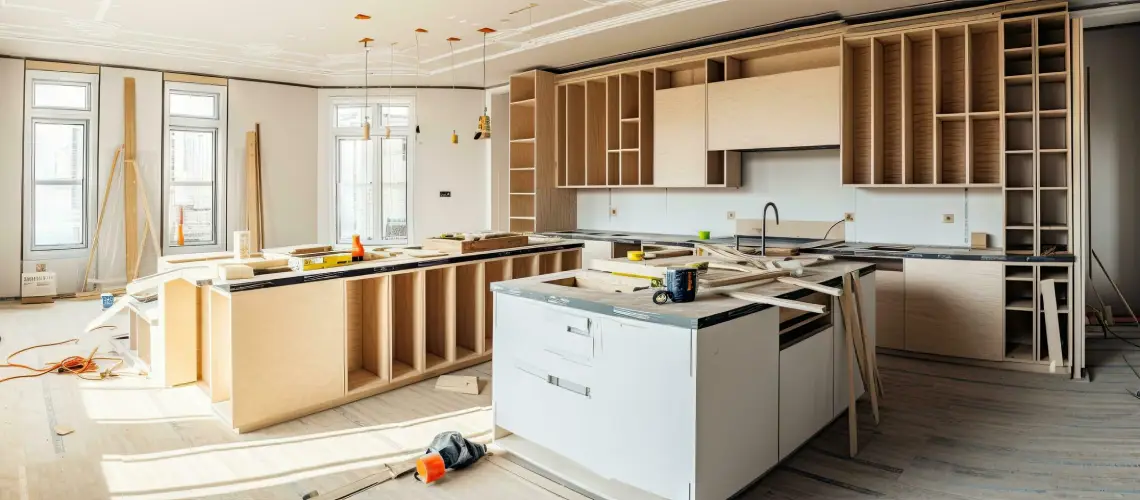Renovating your home or investment property can be one of the most effective ways to increase its value—but not all upgrades guarantee a higher valuation. In Australia’s dynamic real estate market, it’s important to understand how renovations are assessed during a property valuation, and which improvements offer the best return on investment.
How Renovations Affect Property Valuation
When assessing a renovated property, a valuer considers the quality, relevance, and market appeal of the upgrades. A well-executed renovation can increase the property’s:
- Market value (for sale or refinance)
- Rentability and yield (for investors)
- Liveability and appeal to buyers
However, renovations that are poorly planned, non-compliant, or out of sync with the surrounding neighbourhood may add little or no value—and in some cases, even reduce it.
What Valuers Look For in Renovated Properties
During a property valuation, the valuer will inspect and assess:
- The scope of the renovation – Cosmetic vs structural
- Workmanship and quality of finishes
- Permits and approvals for structural or significant works
- Changes to floorplan, space, or layout efficiency
- Energy efficiency upgrades or compliance with modern codes
- How the renovation compares to similar properties in the area
They will also review recent comparable sales of similarly renovated homes to benchmark value.
Renovations That Commonly Increase Property Value
Kitchen Upgrades
- Modern cabinetry, appliances, and benchtops
- Functional layouts and improved lighting
- Open-plan designs that connect to dining/living areas
Why it adds value: Kitchens are considered the heart of the home—buyers and tenants value updated, practical spaces.
Bathroom Remodels
- New vanities, tiles, fixtures, and fittings
- Added ensuite or second bathroom
- Improved ventilation and water efficiency
Why it adds value: Bathrooms influence liveability and resale appeal, particularly in older homes.
Flooring and Paintwork
- Timber or engineered flooring over old carpet
- Fresh, neutral paint to modernise interiors
Why it adds value: These affordable upgrades refresh the property and appeal to a wider buyer market.
Outdoor Enhancements
- Decks, pergolas, and landscaping
- Outdoor kitchens or entertaining areas
- Improved street appeal and fencing
Why it adds value: Outdoor living is a key lifestyle feature in many Australian climates, particularly in suburban homes.
Energy Efficiency Improvements
- Solar panels or battery systems
- Insulation and glazing upgrades
- Efficient lighting and heating/cooling systems
Why it adds value: Growing buyer awareness of energy costs and sustainability makes efficient homes more attractive.
Renovations That May Not Add Value
- Overcapitalising in low-growth suburbs
- Luxury upgrades in modest properties
- DIY work that lacks permits or quality
- Swimming pools (can be divisive due to upkeep)
- Highly personalised décor that limits broad appeal
Valuers assess renovations in the context of the market. A high-end kitchen in a budget suburb may not deliver the expected return.
How to Prepare for a Post-Renovation Valuation
- Keep records of all renovations, including builder invoices, material costs, permits, and warranties
- List key upgrades made since the last valuation
- Ensure the property is clean, staged, and presented well
- Provide a timeline of renovations and improvements
- Highlight any structural or compliance upgrades
The more evidence you provide, the easier it is for a valuer to accurately reflect your property’s new condition.
Timing Matters
A post-renovation valuation is often sought for:
- Refinancing your home loan
- Increasing equity for further investment
- Preparing to sell at a higher market value
- Updating depreciation schedules for tax deductions (especially for investors)
Getting a valuation soon after renovations are complete ensures the market impact of your upgrades is captured at its peak.
Conclusion
Renovations can significantly boost a property’s value—but only when they’re strategic, well-executed, and suited to the local market. By understanding what valuers look for and focusing on improvements with broad buyer appeal, you can ensure your investment is rewarded during the valuation process.
For a professional and accurate assessment of your property’s post-renovation value, consult a Certified Practising Valuer with experience in your local area.



